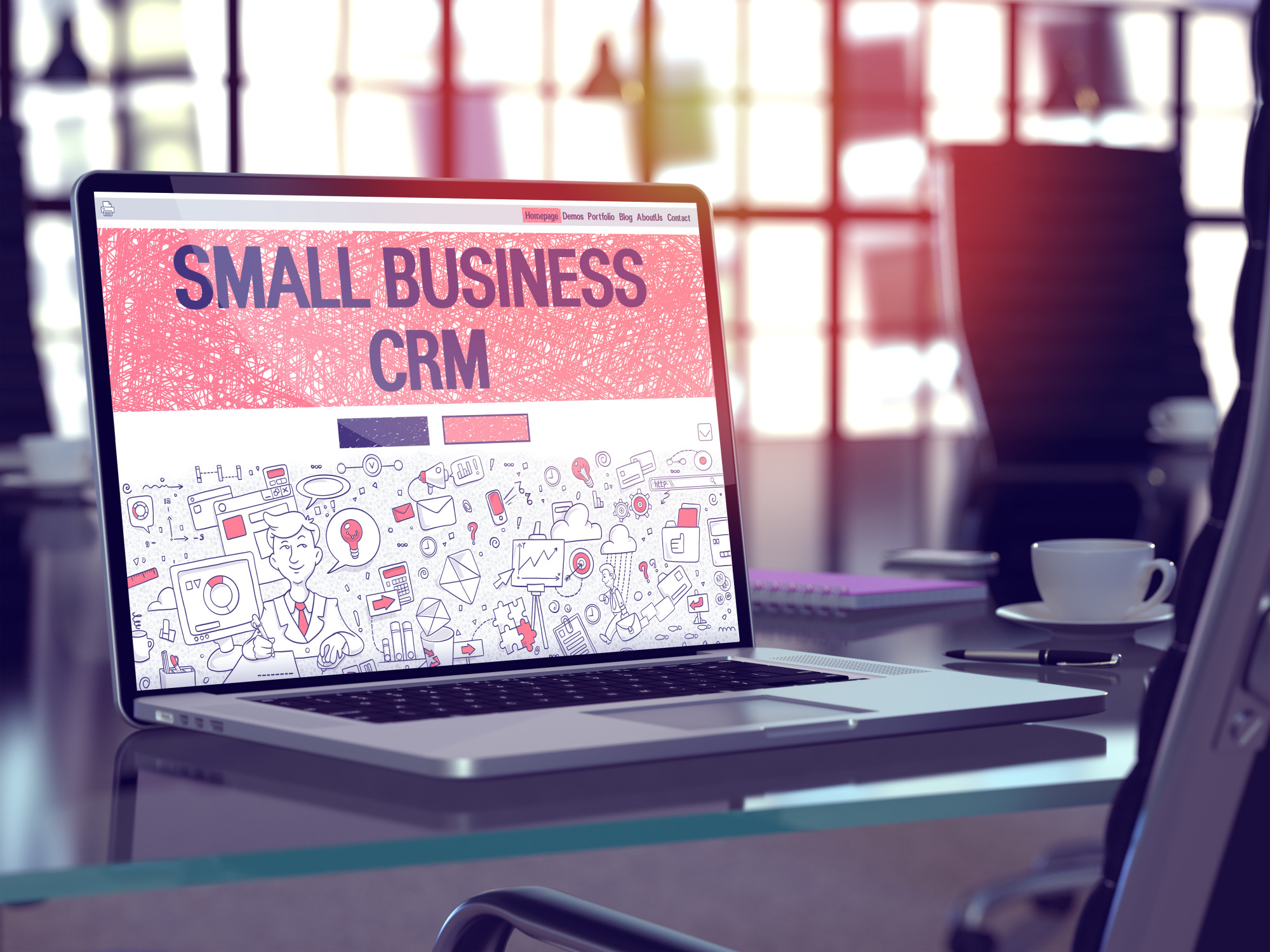What To Know When Choosing CRM Software for Your Small Business


Small Business CRM – Customer Relationship Management – Landing Page in Doodle design style on Laptop Screen. On background of Comfortable Working Place in Modern Office. Toned, Blurred Image.
The wide choice of CRM software small business owners can pick from is mind-boggling.
How do you know which one will suit your business needs, and budget, the best? Which ones can you implement without needing to know lots of technical stuff first?
Let’s take a look at the important questions you need to ask about CRM apps.
Why Do SMEs Need CRM Apps?
Small enterprises already run at capacity: there is little room for you to add extra daily tasks to your time-strapped workforce.
A CRM allows you to automate many previously-manual tasks so that your team can free up their time to focus on business growth.
It also improves your communication with customers to build a loyal following. From personalized email campaigns to accurate data for sales calls, a CRM system holds the key to operational efficiency. That, in turn, means a reliable service your customers can rely upon.
3 Questions About CRM Software Small Business Owners Should Ask
Before you invest in CRM apps for your business, it’s important to know exactly what you want the software to do.
Ask yourself these vital questions before you research your software options. It’ll help you to whittle down the best CRM apps for your business.
1. How Easy Is It to Use?
A full CRM system is accessed by customer service, finance, and sales and marketing teams as part of their regular day-to-day tasks.
That means it needs to be easy and intuitive to use, to minimize downtime for training and reduce the risk of errors.
A CRM app that does everything, but is difficult to use, will end up costing you more in time and training than implementing several, task-specific, linked CRM apps instead.
Always ask for a free trial of any software before you commit. This will allow you to view all the functions as well as assess the usability. Test it out on your staff to see how easy they take to it, too.
2. Is It More Cost-Effective to Use a Bridging App?
If you already use several apps that handle customer data in a range of capacities, changing over to an all-in-one CRM is an expensive task.
Instead of losing a lot of time transferring everything into an integrated CRM app, consider bridging software instead.
PieSync is a great example. It updates all customer records between a huge number of popular business apps. The app will sync contacts across all platforms your business uses with just one click, saving considerable time and improving data accuracy in one go.
3. How Easy Is It to Scale With Business Growth?
The simpler, task-based CRM apps are ideal for shoestring startups who need a budget-friendly hand to organize their data.
However, as your business grows you’re going to have to make a decision: stick with simple apps or transfer to new software.
Sticking with legacy apps risks missing out on advanced functionality such as using AI chatbots to improve response speed to customers.
Transferring to a new all-in-one system means more training, downtime, and risks user error that could disrupt business operations.
The best way to avoid both scenarios is to invest in CRM software that is fully scalable to grow with your business.
Cloud-based CRM systems on subscription services are an ideal solution here: scale up and down with your business fluctuations without over- or under-spending on software investments.
Improve Your Marketing Success with CRM Software
Once you’ve considered the questions about CRM software small business owners need to ask before they buy, it’s time to think about your marketing strategy, too.
A good CRM system will aid your marketing ambitions to simplify processes and improve the customer experience.


